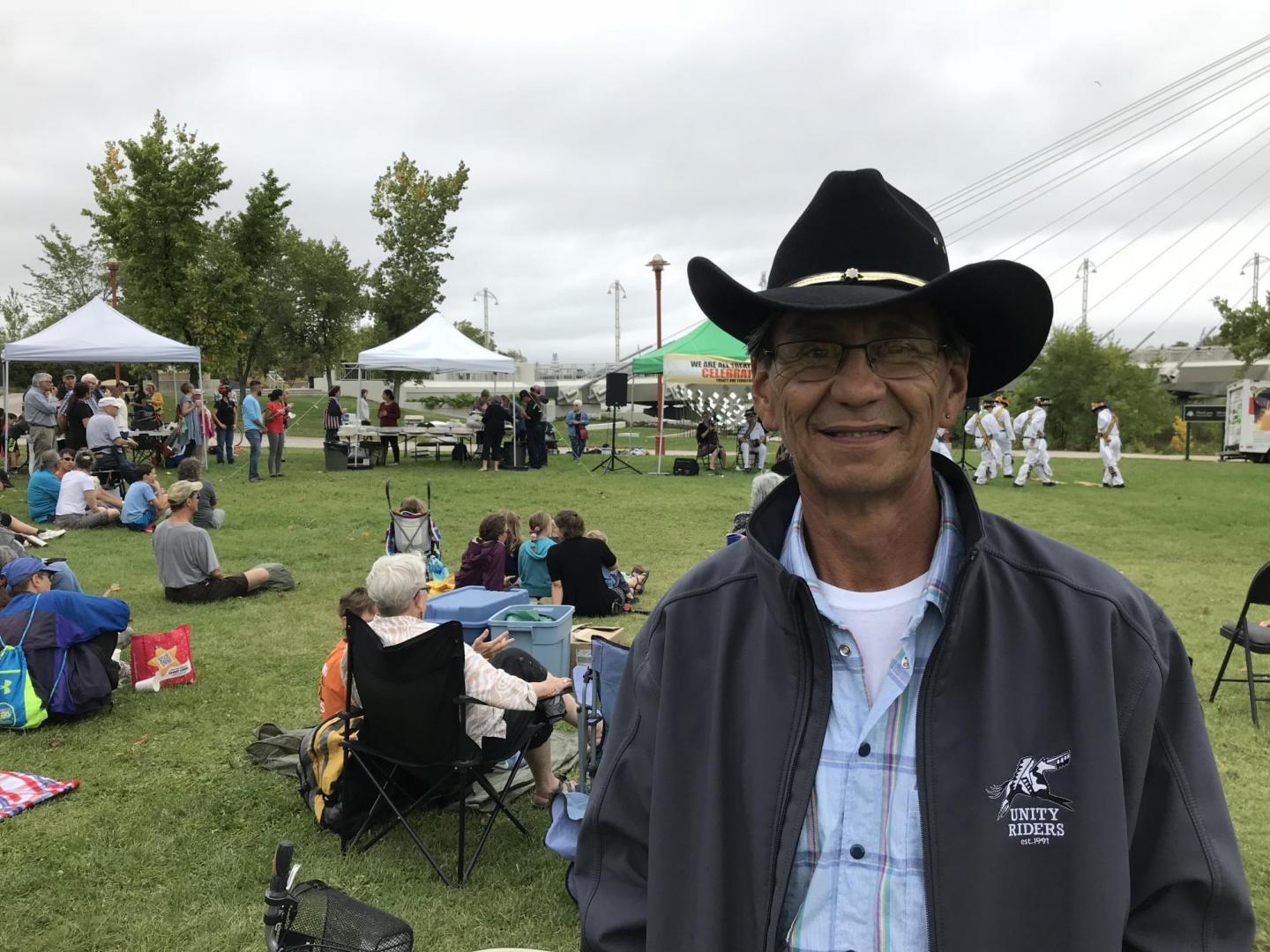Celebrating the treaties

A celebration is an acknowledgement of something’s value.
The We Are All Treaty People celebration, which was organized by MCC, the Society of Friends, Winnipeg and the United Church of Canada in Winnipeg, took place at The Forks on September 16. It was billed as a way of building and celebrating relationships and raising awareness around Treaty 1 using food, storytelling, crafts, music and dancing.
Kerry Saner-Harvey, MCC Manitoba’s Indigenous Neighbours coordinator says celebrating the treaties is a way Indigenous and non-Indigenous people can come together to acknowledge the valuable relationship created by the Treaties, but also the way the agreement was broken.
Here’s why some people came out to celebrate and build relationships around Treaty 1.
John K. Samson: Singer-songwriter and performer at the celebration
Formerly of the Winnipeg indie rock band, The Weakerthans, Samson released a solo album called Winter Wheat in 2016. He performed at the celebration for the first time.
As a Quaker, Samson is part of an ongoing dialogue with his faith community on how to encourage true reconciliation and implement the recommendations of the Truth and Reconciliation Commission.
When asked, “What does it mean for you to be a treaty person,” he responded: “It’s the way I orient myself as a citizen and an artist. It’s useful as a political act and an act of identity to claim this identity and use it as a lens to see how the world works. It’s enriching and helpful for me to do that and find ways to implement this identity.”
Kerry Saner-Harvey
For Saner-Harvey, one way to be a treaty person is to stand in solidarity with Indigenous people to make sure resources are shared equitably.
I have a right to be here thanks to the gracious hosts, the Indigenous people of Treaty 1 territory. It makes me want to be a good guest."
Kerry Saner-Harvey
“I have a right to be here thanks to the gracious hosts, the Indigenous people of Treaty 1 territory. It makes me want to be a good guest. The Treaties stated we would share this land together in a good way. This event is an opportunity to look back on the promises we made as a treaty family. We are here together (at the celebration) as a family,” he says.
Marcel French, Roseau River Anishinaabe First Nation

Marcel French says being a treaty person means taking pride in a culture that was stripped from him as a child.
“It’s rediscovering a culture I lost in the 60s scoop. I was part of the foster care system from age five to 17. Now, I'm rediscovering it and trying to understand it for my kids and grandkids. This event is part of a larger picture of reconciliation.”
Sophia Su
For Sophia Su, the event was an opportunity to learn more about a history and culture she’s unfamiliar with. As a treaty person, she believes it’s her responsibility to learn more.
“I’m curious about the histories and the stories. It’s interesting to know what happened before. I want to do more research later.”
Loretta Ross, Treaty Commissioner and member of Hollow Water Anishinaabe First Nation

For Loretta Ross, the commissioner for the Treaty Relations Commission of Manitoba, being a treaty person is full of emotions that run the gamut.
“It runs from hurt to pride,” she explains.
“For me, I want to encourage and support people to get together around a shared history. To use our understanding and awareness to make a better future based on universal principles of caring and sharing. But it also hurts because the treaty – the original intent was to share the land – was never upheld and our identity and pride has been shaken.”
Sandra Mae Reimer – performer at the celebration

Sandra Mae Reimer lives near the Spirit of the Buffalo camp, which is along Enbridge’s Line 3 oil pipeline. The land defenders camped there aim to stop the construction of a replacement line, fearing the pipeline will cause irrevocable harm to the earth.
Reimer sees herself as a treaty person and lives that out by supporting the Indigenous-led resistance at the camp.
“A treaty is an agreement,” she says. “I’m aware a treaty was made and was broken.”
To Reimer, standing in solidarity with Indigenous people who see the earth as mother and the pipeline as a black snake is paramount.
For more information about MCC Manitoba’s Indigenous Neighbours program and about working towards right relationships, visit our Indigenous Neighbours webpage.

